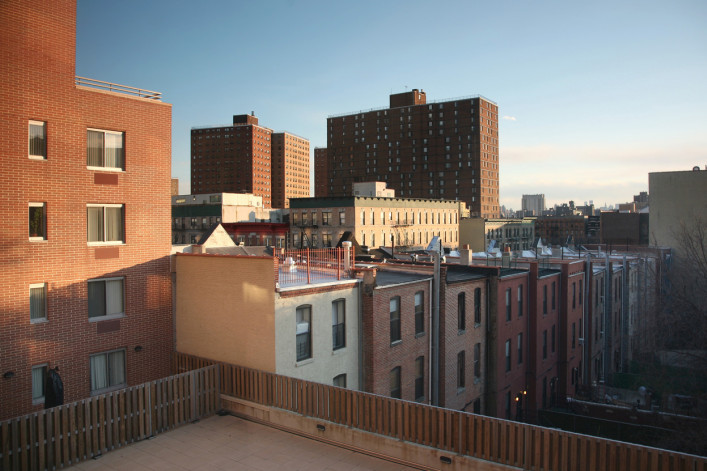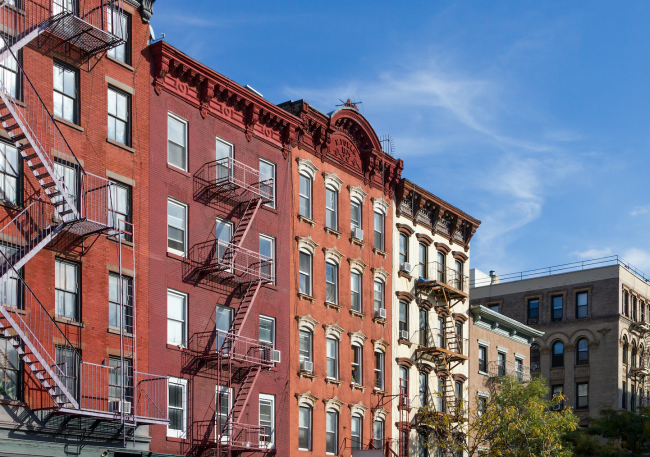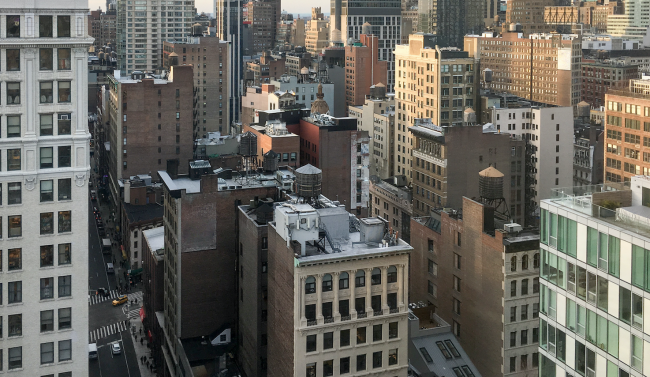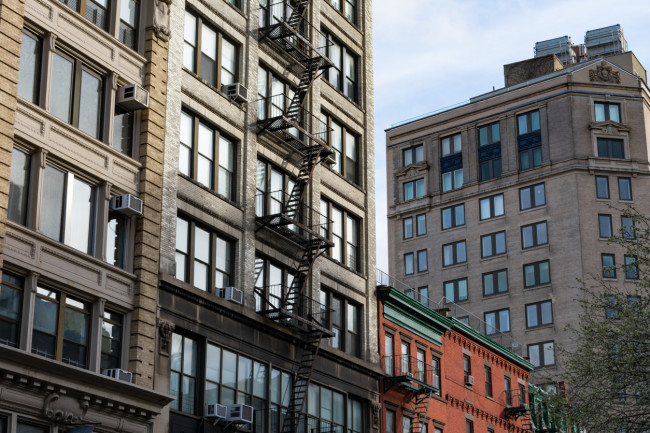Section 8 rent assistance vouchers: A guide for New Yorkers

There are multiple programs that provide rental assistance to struggling New Yorkers, but wait lists for these programs are notoriously long or closed.
iStock
Housing assistance is a lifeline to New Yorkers who are struggling financially, but Section 8 housing vouchers and the myriad programs that administer them can be complicated and difficult to navigate.
The pandemic underscored the great need for affordable housing in the city: More than 550,000 New Yorkers are served by NYCHA’s public housing and Section 8 programs. In addition, at least 40 percent of NYC tenants are rent-burdened, spending more than 30 percent of their income on their rent. Another 60,000 people sleep in NYC shelters each night.
If you are not a current Section 8 voucher holder, your chances of getting into the voucher system are almost nil because funding at the federal level dried up in the past decade. This prompted lawmakers at the state level to propose a housing access voucher program for New York. To the disappointment of advocates for a new system, funding for this program was not included in the most recent state budget. Instead, renters in need are encouraged to apply for below-market rate apartments via NYC’s housing lottery.
For those who are current Section 8 voucher holders: You should know it is illegal for landlords and brokers to discriminate against a prospective renter based on source of income—this applies to apartments in buildings of every size. It is also illegal for landlords or brokers to express a preference for non-voucher holders or publish anything indicating they would refuse to accept renters who receive housing assistance.
However, that hasn’t put an end to discrimination. In the past year, undercover investigators recorded dozens of brokers and landlords discriminating against renters who have housing vouchers. At the beginning of the pandemic, one broker responded to an investigator’s request to use their housing voucher by telling her she did not have a “hope in hell.” As a result, dozens of brokerage firms are being sued for turning away renters who rely on government assistance to subsidize their rent.
[Editor's note: A previous version of this article was published in April 2021. We're presenting it again with updated information for April 2022.]
Uncertainty about the timing of payments, the length of time it can take to place a renter, the inspections involved, and the fact that tenants aren’t being trusted with their money, all play a part in the reluctance of some landlords to take renters that need housing assistance (you can also read about the ways in which NYC landlords think the Section 8 program needs to be changed.) Enforcement continues to be an issue, but if you think you've been subject to discrimination, you can file a complaint with the New York Attorney General’s office or with the NYC Commission on Human Rights.
Read on for more about housing vouchers in NYC.
Housing Choice Voucher program aka Section 8
The Housing Choice Voucher program, also known as Section 8, is a federally funded program providing vouchers to low-income renters to subsidize their housing costs in privately owned buildings. This means they can rent where they like and, if necessary, pay the difference between the voucher amount and the actual rent. In NYC, the program is administered through the NYC Housing Authority, NYC’s Department of Housing Preservation and Development, and New York State Homes and Community Renewal (HCR). Each agency has its own application process and set of rules.
Eligibility for this program is based on a family’s gross annual income and family size. However, the high demand for assistance and the lack of funding at the federal level means wait lists are typically closed even for those who are eligible.
Currently a single person earning less than $41,800 would be eligible and a household of four where the income is below $59,650 would also qualify.
The New York City Housing Authority
The New York City Housing Authority, known as NYCHA, operates 326 city-owned and operated housing developments. More than 400,000 New Yorkers live in public housing across the five boroughs and you can search for affordable apartments through their dedicated NYCHA listing service.
NYCHA has faced steep cuts in funding over the past decades and is currently developing new financing options and partnerships to help preserve and modernize its aging buildings.
The agency also oversees the largest Section 8 program in the country with over 25,000 landlords currently participating in the program. However, NYCHA stopped accepting new applications for Section 8 back in 2009.
Current NYCHA Section 8 tenants must go through an annual recertification process, which includes reporting their income and assets. They're also required to report any changes in household size within a 30-day window. If tenants don't recertify, allow periodic NYCHA inspections of their apartment, and comply with the terms of their lease, they could be kicked out of the program.
NYC’s Department of Housing Preservation and Development
The city's Department of Housing Preservation and Development also administers Section 8, serving households throughout the city. Again, HPD's site notes that applications are not open to the general public. Instead, renters are referred through other programs.
Under the agency's housing choice voucher process, approved tenants are issued a voucher, find an apartment that suits their household size, and have their landlord complete paperwork, according to the HPD Section 8 handbook. The agency inspects the apartment to ensure that it is safe, habitable, and charging a reasonable rent for its size and location.
HPD also offers other rental subsidy programs. This includes the Continuum of Care program for homeless families, and the Shelter Plus Care program which offers project based assistance where a renter moves into a specific building.
The Division of Housing and Community Renewal
The Division of Housing and Community Renewal, a state agency, administers the Section 8 voucher program in NYC through its Subsidy Services Bureau. However, the website states “the wait list for the program is closed with no immediate plans for re-opening it in the near future.”
DHCR also has an oversight role for Mitchell-Lama developments. These are apartment buildings that were created as a result of the Limited Profit Housing Act in 1955 and provide affordable rental and co-op housing for moderate to middle-income families.
The agency is also a resource for those wanting to buy their first home, through the State of New York Mortgage Agency. The SONYMA program allows first-time homebuyers to get a loan if they have just 3 percent of the purchase price.
The Department of Housing and Urban Development
The federal Department of Housing and Urban Development offers various rental assistance programs including housing counseling, and subsidized apartments. Family Self-Sufficiency is one HUD program designed to reduce a family’s dependence on rental subsidies and welfare.
The agency has compiled its affordable housing resources into one page where renters can find subsidized housing, including developments that accept Section 8 vouchers, as well as Mitchell-Lama properties, and apartments available through city and state lotteries.
City programs for the homeless
For those in the most dire straits, who are either homeless or at direct risk of becoming homeless, CityFHEPS is a rental assistance supplement designed to help people find and keep housing. Landlords and brokers get financial incentives to participate in the program and rents are based on the size of your household and indexed to annual NYC Rent Guidelines Board adjustments for one-year leases.
In 2021, Governor Kathy Hochul signed new legislation raising the maximum rent payable from 85 percent to 100 percent of the Department of Housing and Urban Development's fair market rent. This was intended to make it easier for eligible families in the FHEPS program to find housing.
Earlier versions of this article included writing and reporting by Alanna Schubach.
You Might Also Like




























